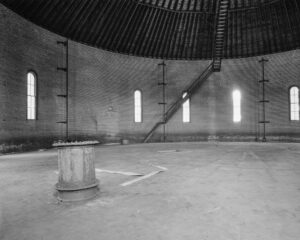 February 20, 2021
February 20, 2021
John Gfroerer
5 Davis St.
Concord, NH 03301
603-224-0364
FOOT OFF THE GAS
Progress. There is no one simple definition for progress. Its measure can be different for everyone and everything. Maybe even every circumstance.
When driving in my car, progress is easily and quickly defined. The goal is getting there. The closer we are, the faster we go, every mile left behind, is progress with a clearly defined conclusion.
In the evolution of a community, however, progress can have multiple incarnations, occasionally all at the same time. And here is where things start to be interesting. Because sometimes progress can be in the form of just stopping. I’m not talking about having the City Council approving that stop sign for the end of your street instead of that round-a-bout. I’m talking about the act of actually stopping. Looking around and taking a breath, seeing what there is to see.
For instance, let’s take the intersection of South Main, West Street and Water Street. Surely worth a stop and look.
It is an interesting mix at that bend. You have a MacDonald’s and a Dunkin Doughnuts. You have Vinnie’s Pizza, a quick stop convenience store and a hairdresser. All in use active fragments of contemporary society with a uniquely Concord twist. And hanging on in the background, hanging on by maybe its last fingernail, is that even more uniquely Concord relic, the “Gas Holder.”
In a metaphoric sense, it seems to be holding off its inevitable future demise from encroaching fast food, fast service, and good-looking hair. No longer useful, you might say the gas holder has patiently waited what fate may bring. Having waited now for nearly seventy years since it was taken out of service in 1952, the answer may finally be calling for resolution. And it is up to us to decide, or at least let our voices be heard.
I read a story recently about Najin and Fatu, the last two living Northern White Rhinos. Mother and daughter, they live at a preserve in Kenya, where they are carefully watched and protected. When they die, their species will come to an end, and there is really nothing that can be done to stop that from happening. When they are gone, they are gone. We had a lesson in that a few years back here in New Hampshire with the Old Man of the Mountain. When it was gone, it was gone. Even after years of preservation efforts.
But this isn’t about rhinos in Africa or odd stone formations in the White Mountains; this is about us here in Concord. We have been presented with stewardship of something that is the last of its kind as well–the gas holder. What will be our response to protecting part of our past, saving it from extinction? Are we being called to preserve or called to put the pedal to the metal on the bulldozer?
Cost comes with either decision. There is a cost to preserve and restore, and there is the cost to get rid of it. What skews the scale is that the cost to preserve is measured in dollars spent, lots of dollars. The cost to tear it down is measured by a perception that it would be cheaper and easier than saving. Often in this kind of a show down, the easier alternative prevails.
But we are talking progress here. We are talking progress as a product of stopping. Admittedly, the harder, more complicated thing will be to save the gas holder. In a sense we have run away from that responsibility for the last 40 or more years. Seems that now we are being forced to stop the running and finally take action.
Let me quote from a report done on the Gas Holder in 1982, written by historian Bill Taylor:
“An unaltered gasholder from the nineteenth century, still surviving after decades of disuse, is one of those fortunate circumstances for which industrial archeologists must be appreciative. This quite ordinary structure has become a unique artifact and an example of a once quite important…manufacturing process. It and those now vanished aided immeasurably in improving the quality of life in the nineteenth and twentieth centuries.”
Written nearly 40 years ago, it remains even more true today.
Let’s come together as a community and do something about this. It will be a challenge for sure. But when the work is done, and the last gas holder of its kind in America has been saved and preserved, there will be no regret about the accomplishment.
For more information about the Gas Holder and how you can get involved, click here: https://www.saveourgasholder.org/

